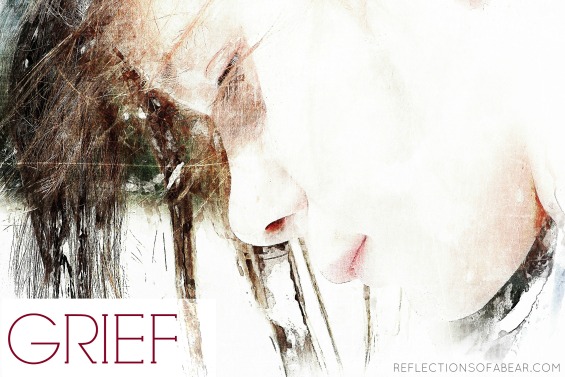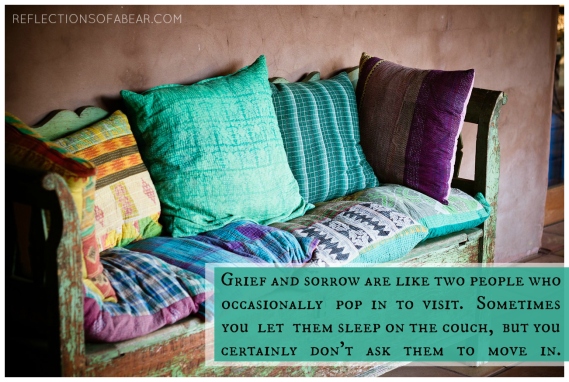A lot of newly diagnosed patients have just joined a dysautonomia support group that I’m part of. Seeing their posts got me thinking about when I was first diagnosed, and the emotions that caused. When it comes to chronic illness diagnosis, everyone’s experience is different, and everyone processes their experiences differently. So I don’t want to tell anyone what they should be feeling, or how they should deal with it. I just want to share my personal experience, in the hope that others might find it helpful.
* * *
For me, being diagnosed with a chronic illness was an emotional time.
I was confused: What is this illness? How did I get it? WHY did I get it?
I was hopeful: Maybe now that they know what I have, they can treat it?
I was afraid: How will this illness affect my life? People aren’t going to understand… All the dreams and plans I had – am I ever going to be able to do them?
There were so many different feelings all swirling around inside of me, fighting for recognition. But relief and grief were the two emotions that stood out.

It might sound strange for someone to be relieved to be diagnosed with a chronic illness. But don’t confuse relief with joy or happiness. Being happy to have a chronic illness is very different to be relieved to know what you have.
Relief
The word relief comes from the Latin relevare, which means to lift and alleviate. Diagnosis lifts the mental burden of suffering from an unknown illness, and the feeling of relief that brings is indescribable.
A chronic illness sufferer has often been dealing with horrible symptoms for a long time, without any understanding of what is wrong with their body. It typically takes dysautonomia patients 6 years before they are correctly diagnosed. That’s 6 years searching for answers, but not finding them. 6 years of being made to feel like you are just anxious or making it all up for attention. 6 years secretly worrying that the doctors might be right, and you’re just crazy after all.
“Maybe there’s nothing wrong with me. Maybe I’m just not as strong as everyone else. Maybe it’s all in my head, and I just need to *will* myself better. Maybe I’m just not trying hard enough. Maybe I AM just anxious or depressed, like all the doctors are telling me…”
And then, one day, a doctor says to you, “You have ________”.
And suddenly, your symptoms make sense.
When you injure yourself, diagnosis not only relieves your emotional distress, but also leads to relief of your physical symptoms. Broken arm? We’ll put it in a cast and the bones will heal. Sinus infection? We’ll give you a course of antibiotics, and it will clear up in no time.
But dysautonomia, like many other chronic illness, has no cure. All that patients can hope for is to find things that will help them minimise their symptoms.
So when I found out what I had, there was relief.
But when I realised it wasn’t going away, there was…

Grief
The word grief comes from the Latin word gravare, which means to make heavy.
Gravare itself comes from the Latin word gravis, which means weighty.
So grief is a heavy, oppressive kind of sorrow.
Being diagnosed with chronic illness can feel like the death of a loved one.
That’s because ‘healthy you’ has died.
It’s okay to feel the weight of that.
It’s okay to get overwhelmed.
It’s okay to cry and be sad about it.
It’s okay to get frustrated and angry.
It’s okay to be all of the above, all at the same time.
It’s not just okay, it’s normal.
(Unless you are Ron Weasley, from J.K. Rowling’s Harry Potter)

And when you’ve grieved, and have come to terms with your illness… that’s not the end. The emotions that come with having a chronic illness are not like a Contiki tour. You know, a journey with a neat itinerary, with places that you see once, and then move on?
“Today, we’ll be spending the day on Grief Mountain. Feel free to have a look around, but be back here by 3pm: we’ll be ferrying out to stay on the picturesque Relief Island for four nights. On day five, we’ll visit Hope Reef, and then stop over at Confusion City for some shopping before you all head home…”
It’s more like travelling on a mad train that unexpectedly switches tracks, and even travels multiple lines at the same time .
“You’ll be travelling the grief track today, after talking with a friend who has just graduated Uni, and being reminded that you couldn’t finish your degree. The train will then jump over to the hope track, after a conversation with your doctor about a new treatment you can try. You’ll switch to anxiety track spontaneously, not wanting to get too excited, in case this treatment doesn’t help (as so many before haven’t). Grief track will make another appearance when you hold your newborn baby niece, and are overwhelmed with sadness at the lack of your own children. The joy track will appear out of nowhere, when your newborn baby niece spends fifteen minutes smiling at you, and then two hours sleeping snuggled against your chest. You’ll get home and then simultaneously travel the grief, frustration and joy tracks, while you try to make dinner for your husband, enjoying the act of cooking, but unable to eat any of the food.”
So if I could tell a newly diagnosed person three things about the grief that comes with a chronic diagnosis, I’d tell them:
1. It’s okay to not be okay with having a chronic illness: it’s okay to grieve.
2. It’s okay to grieve more than once; for grieving to be a process that you’re always working through. (This year marks thirteen years of chronic illness for me. I’m still navigating through all the emotions that brings!)
3. But don’t let your grief overtake your life – you are more than your illness.

(As a Christian, this last point is especially important to me. I know that happiness and comfort are not my purpose in life, so I don’t want to waste my life grieving the fact that everything is not going the way I want. I have more important things to do, and better things to look forward to).
Finally, I’d tell them…
You are not alone.
Thanks to the wonders of the internet, you can get in touch with lots of others who are also living life with chronic illness. There are blogs and forums and Facebook groups full of people who are fighting the same fight as you right now. Talking to them can keep you sane.
xx S.
P.S. Coping or not coping with your chronic illness has nothing to do with ‘how strong you are’. So if you are having trouble coming to terms with your chronic illness diagnosis, please don’t be ashamed to have a chat to your doctor. They’ll refer you to someone who can help you to sort out all the different thoughts and feelings you’re experiencing, and give you tools to process them.

Couldn’t agree more, I went (and honestly still go through) the same phases back and forth through diagnosis and adapting to knowing I’ll have this ‘thing’ forever. Explaining the difference between relief and happiness is really important, especially from an outsider or loved one’s perspective.
LikeLiked by 1 person
Yes! I wanted to share that it’s not just about the initial grieving stage, but that grieving is more a process that you go through for life. And that’s normal, and okay.
*hugs*
LikeLiked by 1 person
Brilliant.
LikeLiked by 1 person
Thanks ❤ xx
LikeLiked by 1 person
You are spot on with the way grief works! And grief is sneaky. Pops in out of nowhere like a sad dreary depressing ninja.
I’m living on acceptance street- with brief visits from a whole host of emotional visitors- frustration and exasperation are the most regular guests at my place- but they aren’t welcome to move in x
Xxx
LikeLiked by 1 person